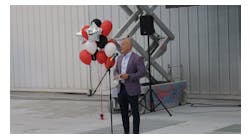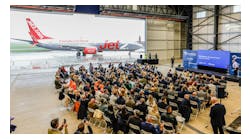TTD Supports FAA Effort to Raise the Bar on Outsourced Aircraft Maintenance
Washington DC – The Transportation Trades Department, AFL-CIO (TTD) submitted comments to the Federal Aviation Administration (FAA) today urging the swift implementation of a statute requiring foreign-based aircraft repair facilities working on U.S. aircraft to be held to the same alcohol and drug testing standards as those based in the United States.
"The time is now to end a double-standard that has permitted FAA-approved foreign aircraft repair stations to evade significant safety requirements for more than 25 years," said TTD President Edward Wytkind.
The FAA issued an Advanced Notice of Proposed Rulemaking (ANPRM) that begins the implementation of section 308(d)(2) of the FAA Modernization and Reform Act of 2012. Currently, drug and alcohol testing is not mandated for work done at foreign stations on U.S. aircraft but is required for the same type of repair work performed in the U.S. "Bringing these standards into agreement will ensure that the epidemic of aircraft repair offshoring found among U.S. airlines doesn't jeopardize air safety," Wytkind said.
The statute does provide that the testing rules be consistent with the laws of the country in which the repair station is located. Nevertheless, Wytkind explained, "It's crucial that the FAA review any and all requests for waivers to the rules so that exemptions never come at the cost of safety."
The FAA is considering expanding this rulemaking to include maintenance personnel working at certain non-certificated repair stations. TTD supports this initiative and believes that this oversight responsibility should be expanded beyond the narrow selection of facilities the FAA has initially proposed.
Although this ANPRM is only a precursor to the mandated proposed rule, Wytkind said, "This proposal is an important and overdue step in our multi-year campaign to hold aircraft repair facilities to the same safety standards no matter where they're based in the world. It is time to stop studying this issue and to finally complete a rule that gives the flying public confidence that our government is doing everything it can to ensure the safest skies possible."


